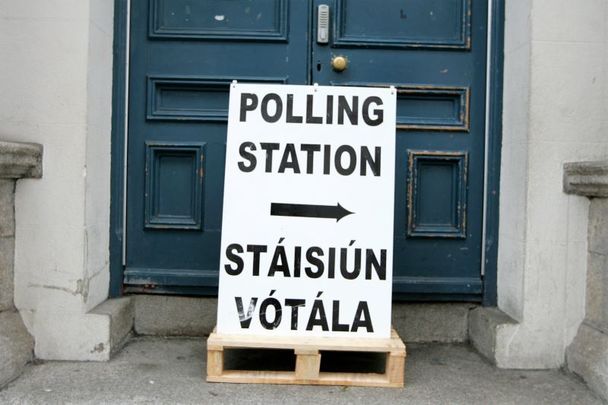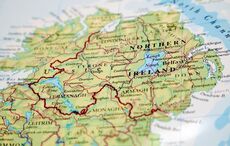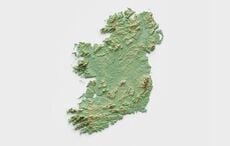Emma DeSouza, a citizen of Northern Ireland who successfully fought for her right to identify as Irish, is set to consider the “hierarchy of Irishness” at an upcoming digital conference.
The Citizenship, Emigrants and Voting Rights Post Brexit digital conference, which will be hosted virtually on March 1, is being organized by VotingRights.ie and the Clinton Institute for American Studies at UCD, in association with EPIC: The Emigration Museum and VICA (Votes for Irish Citizens Abroad).
Emma DeSouza, a native of Derry who is an Irish citizenship campaigner and Vice-Chair of VotingRights.ie, will chair a session on ‘Northern Voices’ and the extension of voting rights to citizens north of the border during the conference.
DeSouza said: “As more and more people in Northern Ireland claim their birthright to Irish citizenship, it’s essential that we establish what that citizenship entails and explore how to fully engage and recognise the legitimacy of all Irish citizens both in Northern Ireland and abroad.”
“The Irish nation is broad and diverse and a most essential proponent in what it means to be an Irish citizen. As someone who has successfully campaigned to reaffirm Irish citizens rights in Northern Ireland, it strikes me that the current electoral system in Ireland perpetuates a hierarchy of Irishness. That those of us who live half an hour up the road or across the Irish sea cannot vote for the President of Ireland is an outdated and discriminatory practice that undervalues the commitment and contributions of Irish citizens resident outside the State.
“The people of Ireland have taken progressive leaps in shirking the once conservative shroud which dominated Irish society in order to carve out a more inclusive, rights-based society – embracing a more inclusive concept of Irish citizenship is a logical next step for a country ushering in change.”
DeSouza has been tuned into the theory of "hierarchy of Irishness" since as early as 2019:
I've been researching the potential impact of #Brexit on Irish citizens within the UK & discovered a minimum of four categories of Irish citizens - a hierarchy of rights if you will. What's becoming clear is that there's no winners here only uncertainty, restrictions & obstacles. pic.twitter.com/8bRT8Mf2Np
— Emma DeSouza (@EmmandJDeSouza) July 1, 2019
Per VotingRights.ie, "Ireland, with over 1 million emigrants living around the world, and over 800,000 citizens in Northern Ireland, has among the most restrictive voting policies in the world. Most nations, including nearly all our EU peers, allow their emigrant citizens to retain their right to vote. Ireland does not.
"This disenfranchisement deprives citizens of their right to be heard in their home country, and deprives the home country of the perspectives of a substantial proportion of the nation. It puts Ireland out of step with EU norms, and deprives EU citizens exercising their right to freedom of movement of their right to vote in their home country."
VotingRights.ie says the digital conference comes at a crucial time for Irish citizens at home and abroad, with the reality of Brexit now biting, and the global pandemic ongoing. The discussions will respond to the Irish government’s diaspora strategy, and the commitment to a referendum extending the franchise in presidential elections to all Irish citizens.
Irish emigrants from academia, law, and media will join the digital conference from around the world to discuss the role of emigrants in Irish society and the need for electoral reform that accommodates citizens voting from abroad. The implications and opportunities of Irish citizenship in Northern Ireland will also be explored.
The conference will be accompanied by the release of a major new poll on attitudes to voting rights in Ireland, and the publication of The Citizenship Papers – a series of essays commissioned to explore what it means to be an Irish citizen.
Other discussions on the day will focus on ‘Voices of Emigrants’, the constitutional and legal issues around citizenship and electoral reform, and an in-depth look at poll results with Kevin Cunningham.
The event will be attended by Minister for the Diaspora Colm Brophy and Minister for Electoral Reform Malcolm Noonan. It will include representatives from major political parties across the island of Ireland, including Fine Gael, Sinn Féin, SDLP, the Greens, Alliance, and independent unionists.
Former Senator for the Diaspora Billy Lawless has long campaigned for voting rights for all Irish citizens and will play a key role in the day. Lawless said: “Emigration now is not permanent, it’s temporary, the majority of them fully intend to return.”
Dr. Liam Kennedy, of the Clinton Institute at UCD, said: “For too long the issue of emigrant enfranchisement has been pushed to the margins as Irish governments celebrate ‘our global diaspora’. It is time to consider how we can enlarge and honour our ideas of democratic citizenship and test the state’s political will to give emigrants voting rights.”
To learn more about the upcoming Citizenship, Emigrants and Voting Rights Post Brexit digital conference, visit VotingRights.ie.




Comments